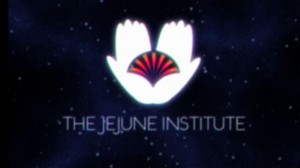If you’ve had any experience with the Jejune Institute, it’s probably similar to my own: I was introduced to it by a friend, who first took great pains to pronounce the name correctly — je-joon — and then refused to say another word on the subject. “I can’t tell you anything more about it,” he said, “but you should definitely go try it for yourself.”
Catching on largely through word-of-mouth, the now inoperative Institute was an alternate reality game and beloved not-so-secret secret created by Oakland artist Jeff Hull. Also named the Center for Socio-Reengineering, the Jejune Institute has long been the subject of misinformation and rumor, with many mistaking the game’s smattering of devotees and obscure operations for the trappings of a cult. In truth, it was a multi-level urban scavenger hunt, and an opportunity to better familiarize oneself with San Francisco and explore the landscape through appreciation of the small details: a graffito, or a plaque stuck at the base of a forgotten statue. It was, at best, a game both meticulously planned and unpredictably spontaneous, revealing a hidden, less-appreciated San Francisco.
Before closing in 2011, the Institute was located on the 16th floor of 580 California Street, in the heart of the city’s Financial District. Visitors were given a key with instructions directing them to an enclosed, automated room where an “induction” process began: an orientation film — the stuff of an ’80s instructional video — briefed viewers on the origins of the Institute and the phenomena of poli water, explaining the “vital orbit” and “the algorithm.” If you’ve been there, you likely watched the nonsensical video, laughed nonchalantly with your friends at the absurdity of it all, and secretly worried the door would lock behind you at any moment.




